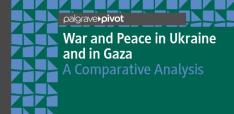Why Cairo concerns us
The Egyptian dream of a peaceful revolution may have vanished under the cudgels of goon squads loyal to the Mubarak regime – the dream of freedom certainly hasn’t. That is what unites the people in Cairo, Alexandria, and Suez and us. Especially us Europeans, who celebrated the revolution of 1989 only a little more than a year ago. The proverbial ‚cloak of history’ is within reach. Yet no one in the West seems to be willing clutch it.
It seems we must harbour so much disbelief about what we are witnessing in the Arab world, as there is no other explanation of why the reactions throughout Europe are so timid. The people in the Maghreb and Mashrak are raising against their authoritarian rulers – and are met with pusillanimity in the ‚free world’. And that’s despite the fact that a revolution is unfolding in our immediate neighbourhood. Even though its outcome is by no means clear yet, it already deserves this name.
The year 2011 will without doubt represent a turning point in Arab history. Whether it will become a fourth wave of democratisation, only time will tell. Nonetheless, there should be no question about where the enlightened West should stand.
It’s high time to take up an unequivocal stance in support of the democracy movement and let go of the authoritarian rulers we have supported for too long. After the Egyptian president has unleashed paid thugs and plain clothes policemen onto the demonstrators, he has lost any remaining legitimacy to manage the transition of the country. Even though placing one’s bet on the opponents of the regime certainly bears the risk of failure – we would at least fail together and on the right side, that is on the side of our very own values.
The European Union showed in Central and Eastern Europe that it can successfully support democratisation processes. The fact that it took 15 years from the fall of the Iron Curtain to Eastern Enlargement only shows how tedious this process is even under favourable starting conditions. And even though the perspective of accession obviously lacks for the countries in Northern Africa and the Near East, the EU remains the natural partner for the promotion of democracy and human rights. Most of all, the Union can now put its neighbourhood policy on a completely new footing. It no longer has to negotiate with dictators that it believes it needs to control refugee flows and to fight terrorism. Instead it can directly tackle the latters’ root causes by furthering freedom and prosperity in the countries concerned.
That is why Egypt and the whole Arab world concern us: It is the neighbour who needs to live well so that we can live in peace. So much was clear already before the protests started in Tunisia. Now, they are also the neighbours that take to the streets in the name of our values and risk their lives. A little more enthusiasm would thus be very becoming to us all.
There is another thing that ties us to the events in Cairo and elsewhere. In Greek mythology, ‚Kairos’ was the god of the opportune moment. The back of his head was bald, making it impossible to take hold of him once he has passed by. That’s why we should jump at the opportunity and help Freedom realise its first great victory of this decade.


